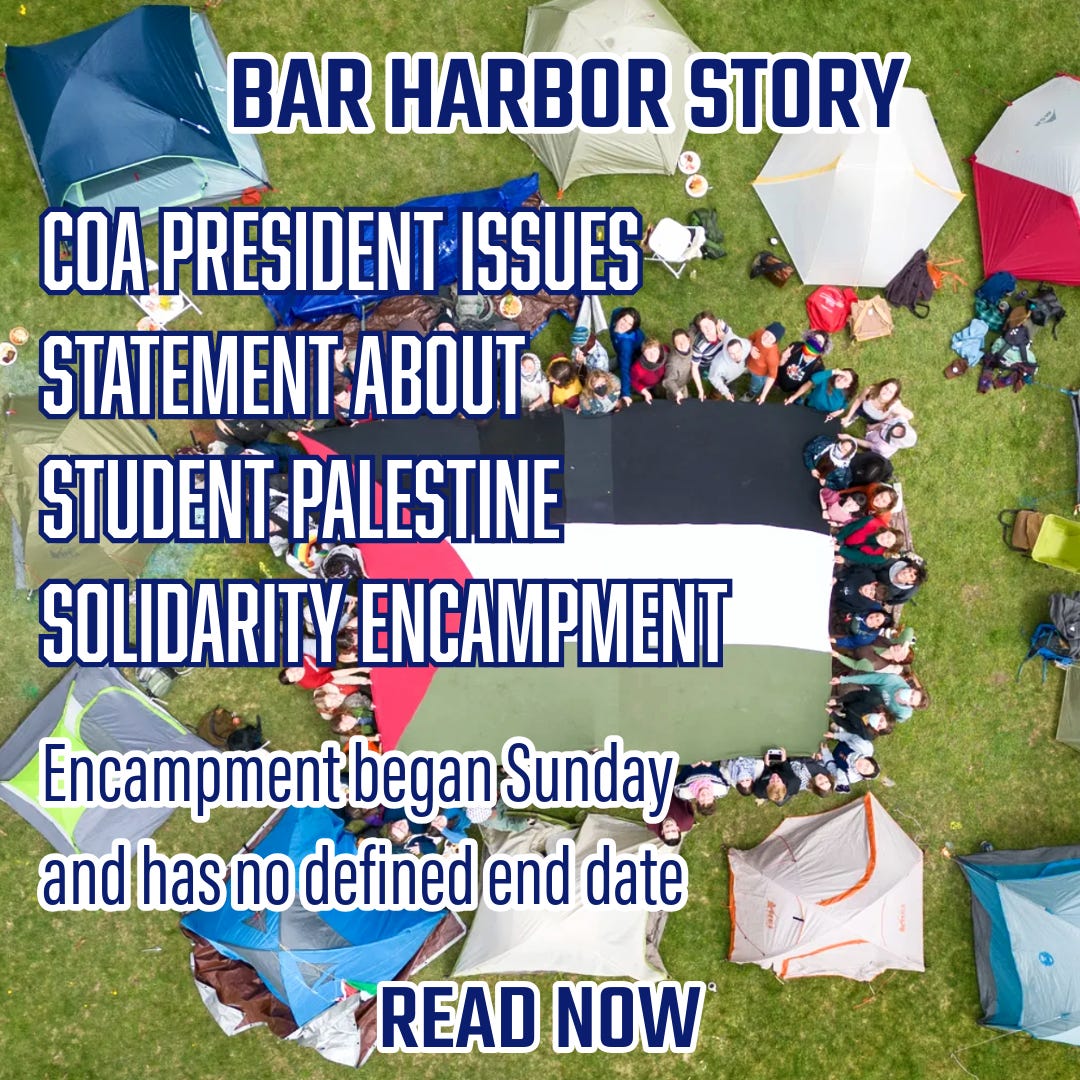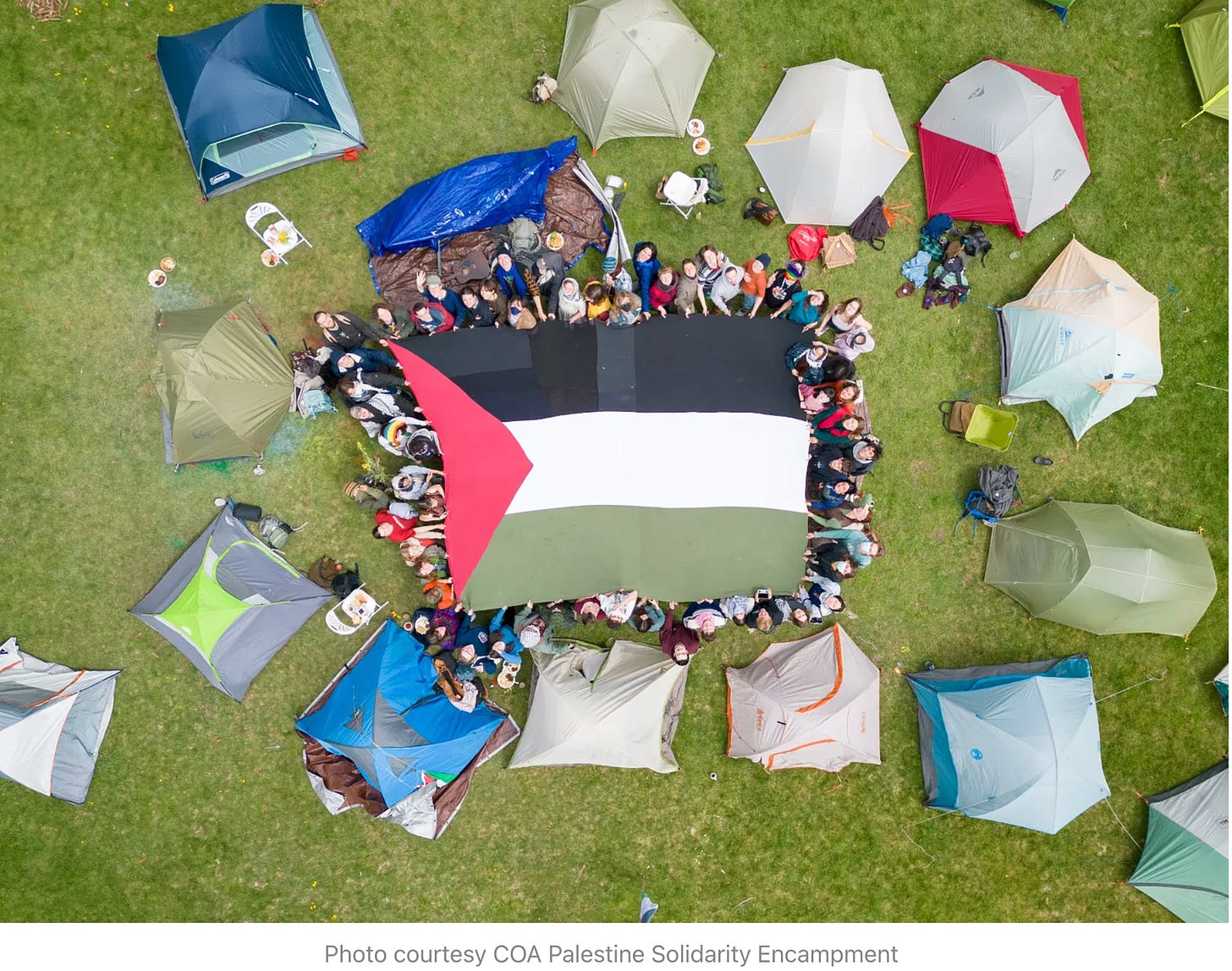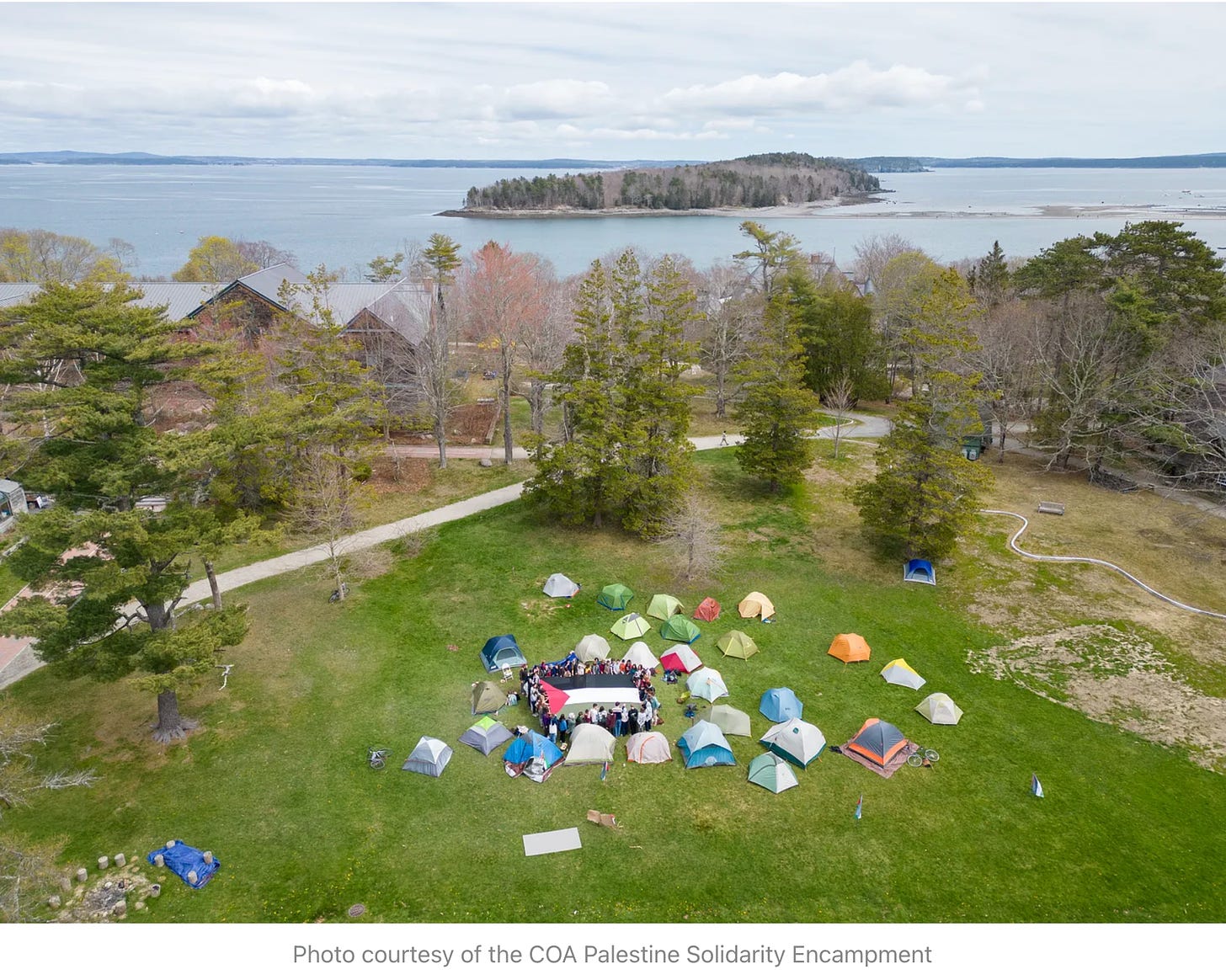BAR HARBOR—College of the Atlantic President Dr. Darron Collins ’92 has issued a statement regarding the political encampment on the COA campus that began on April 28.
Since Sunday, April 28, approximately 75 students have set up an encampment on the lawn of the College of the Atlantic (COA) to show solidarity with the people of Palestine.
There is currently no academic strike or defined end date for the encampment. The Bar Harbor Story released an article about the encampment Tuesday, which included another statement from COA President Darron Collins. The students involved then issued their own statement on May 1. Collins followed up with the statement below. In it, he asks the students to take into consideration negative impacts to the environment as they encamp, for them to continue coursework, and to not permit hate-speech, particularly that focused on identity. He does not say that any of those things have occurred. He also briefly discusses the typical processes for students to impact the college’s investments and its formal positions.
The students had listed the following demands in their statement:
COA continues to protect our community’s right to freedom of speech and right to protest indefinitely.
COA publicly denounces the ongoing genocide of the Palestinian people.
COA discloses their investments.
COA as an institution prioritizes divestment from all weapon manufacturing, surveillance and tech, and construction companies that are profiting from the ongoing genocide of the Palestinian people.
COLLINS’ MAY 2 STATEMENT
Since the founding days of College of the Atlantic, peaceful protest has been a cornerstone of human ecology; thus, it is no surprise that students are leading the charge here to engage in an encampment. The COA administration wholeheartedly supports our students’ rights to engage in this act of protest and free speech.
There are a few things I have asked students to take into consideration during the encampment.
The COA administration is bound to prioritize, as always, public health and safety for COA and surrounding communities, and I am hopeful that participants will consider that their responsibility as well. We will be keeping a close, friendly, and collaborative eye on how things unfold.
It’s important that participants are thoughtful about trash, use of the bathroom, water, and etc. I ask everyone involved to take great care to minimize negative impacts on campus property and infrastructure.
Faculty will not be asked or required to accommodate absence from classes. With graduation five weeks away, it is imperative that students are able to complete their coursework. With this in mind, peaceful protests may not interfere with classes.
Most importantly, as an academic institution, we pride ourselves on challenging our own assumptions and thoughts, as well as those around us. However, any form of hate speech–displayed on a sign, clothing, or otherwise, or voiced verbally, will not be tolerated. We all have to be vigilant and cognizant about that sometimes translucent line between challenging someone’s beliefs and threatening their identity, and avoid the latter at all costs.
Overnight participation in the student encampment must remain limited to members of the COA campus community.
Our COA community must always remain a welcoming, inclusive one, with room for all civil perspectives on complicated issues like the ones we face today. As a college, our position is one in support of freedom of speech, political expression, and the choice to engage in civil disobedience. We would provide similar support for any students who were looking to express their perspectives on important issues. Here at COA, I fully expect that a broad and diverse set of viewpoints and civil expressions of such could, and would, exist peacefully side-by-side.
Students in the encampment acknowledged our support of their right to protest and issued a set of demands to the college on April 30 that include making a statement and exploring divestment. I have responded with several points:
We are fortunate at COA to have a mechanism for stating formal positions of the community through our All College Meeting, and this path is available to these students to explore making such a statement.
Questions of investment within our endowment are ultimately decided by the Board of Trustees, but can also be influenced by our governance process, and that is an applicable route to explore. Students taking part in the encampment met last week with our CFO on this topic, and they have been invited to join the trustee’s Investment Committee meeting next week to discuss this issue further.
The verb “demand” has surfaced a lot in the case of other colleges and their encampments, but it isn’t necessarily appropriate in our context. Our governance system is set up to provide collaborative channels so we don’t have to use demands, decrees, or edicts to make change here at COA.
LINKS TO LEARN MORE
COA’s sustainable investment fund
COA’s web page about its investment.
COA’s philanthropy report
If you’d like to donate to help support us, you can, but no pressure! Just click here.










I'd suggest that, while admirable in many ways, the administration's statement speaks more to its fears about what is happening on some other campuses, than what is actually happening at COA. (And that their anxious apprehension elides the role of counter protestors and police in inciting violence at other campuses.) In this respect, the COA students are ahead of the administrators - by demonstrating their commitment to the COA ethos of local action, in the spirit of the humanities' emphasis on justice and compassion, and the sciences' emphasis on coming to consensus through reasoned debate of empirical evidence.